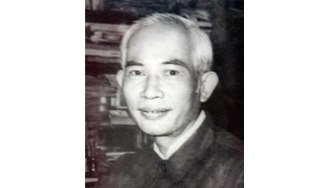
During the nine years of resistance against the French, Professor Hoang Xuan Nhi participated in the Southern Resistance Administrative Committee, directly serving as Director of the Southern Resistance Cultural Institute and Director of the Southern Education Department. When peace was restored, he gathered in the North and worked at the Hanoi Pedagogical School (1954-1957) and Hanoi University (1957-1982). With a high sense of responsibility as a soldier on the cultural and educational front, the Professor focused on learning Russian to translate 4 volumes.Marxist-Leninist aesthetic principles" of the Academy of Sciences of the USSR and the bookAesthetic categoriesof Borep, compiled 8 volumes of Russian Literature textbooks to serve the timely needs of university teaching and literary research (2, p. 400). After paving the way and laying the foundation for the Russian Literature major and spreading the principles of Marxist-Leninist aesthetics in Vietnam, Professor Hoang Xuan Nhi returned to the national cultural heritage..During the period of fighting against America to save the country, Professor Hoang Xuan Nhi wrote a thesis.Learning about President Ho's poetry. The book was first published in 1974 and reprinted in 1976, a work full of passion "full of salt, the salinity of the land, of life, in sync with the fighting and building breath of our army and people".
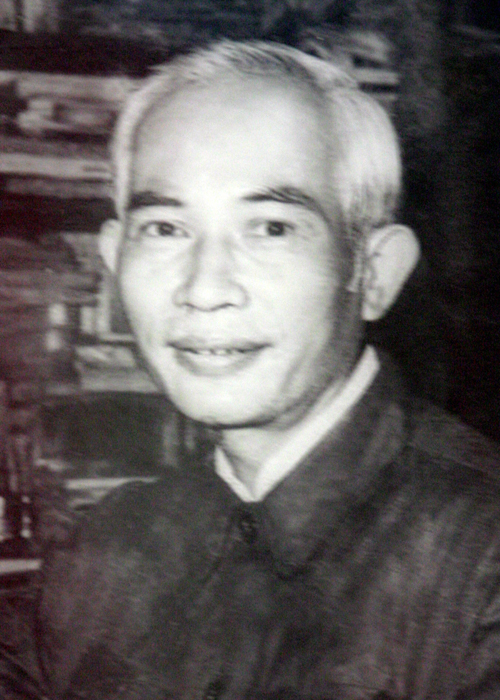
Professor Hoang Xuan Nhi (1914-1991).He was the Head of the Department of Literature (1960-1979)
During his research career, Professor has left behind many articles and excellent scientific works. We can mention typical works such as:Against modern reactionary bourgeois ideology in aesthetics, literature and art(Introduction, translation, compilation). Published by Hanoi University of Science;M. Gorki – Life and careerTruth Publishing House, 1958 - 1959;History of 19th-century Russian literatureCulture Publishing House, 1960;Marxist-Leninist aesthetic principles,Episode 1. 1961, 1963;Lenin and party spirit in modern revolutionary literature. 1970, (mimeographed);Modern revisionism in literature and art in some countriesHanoi University of Science, 1974;Learning about President Ho's poetry. University and Vocational High School Publishing House, 1976. As a patriot, proud of his nation, and loving President Ho Chi Minh, the professor devoted much of his heart to researching his poetry and literature..He wrote the workLearning about President Ho's poetryDuring the days when teachers and students of the Faculty of Literature of Hanoi University had to evacuate to Viet Bac, he “worked and labored among the beloved Viet Bac people whose loyal revolutionary spirit and glorious fighting tradition are the pride of the people of the whole country, among the mountains and forests that were once the “capital of resistance” and had the footprints of beloved Uncle Ho…”. He finished writing the last lines of the work when he heard the shocking news: beloved Uncle Ho had passed away. In October 1969, he opened the school year for the fourth-year Literature class with a topic on President Ho’s Poetry with boundless grief and great pain pouring out through tears and choked lectures.
With the scientific perspective of a communist, taking Marxism-Leninism as the theoretical basis, illuminating literary phenomena from the standpoint of party spirit, focusing primarily on the ideological content of literature, Professor Hoang Xuan Nhi discovered and analyzed important issues such as party spirit, people spirit, and national spirit in Uncle Ho's poetry. The thesis clarified a core issue in Ho Chi Minh's literary and artistic creation activities: Uncle Ho wrote literature and poetry with the noble purpose of revolution, for the cause of national liberation, for the happiness of the people. For Uncle Ho, literature was first and foremost a weapon of war, a means of revolutionary propaganda, and revolutionary content was the primary and primary aesthetic object. When explaining the great artistic effect of Uncle Ho's poetry, Professor Hoang Xuan Nhi said, "Uncle Ho wrote for the revolution and therefore for poetry." Because poetry is not the main purpose, but if it were not for poetry, it would lack artistry, appeal, and influence. Uncle Ho was an artistic talent, he deeply understood the aesthetic characteristics of art. The revolutionary thoughts in his poetry were transformed smoothly into thoughts - emotions - aesthetics, thus he "brought the Party's line into the hearts of every person who lost his country, and thus led to the unanimity of the entire people in the struggle for the vital interests of the Fatherland and the nation". The above analysis is profound and convincing, however, if the author of the thesis focused on highlighting the beauty and talent of Uncle Ho's poetry, the persuasiveness would be even higher.
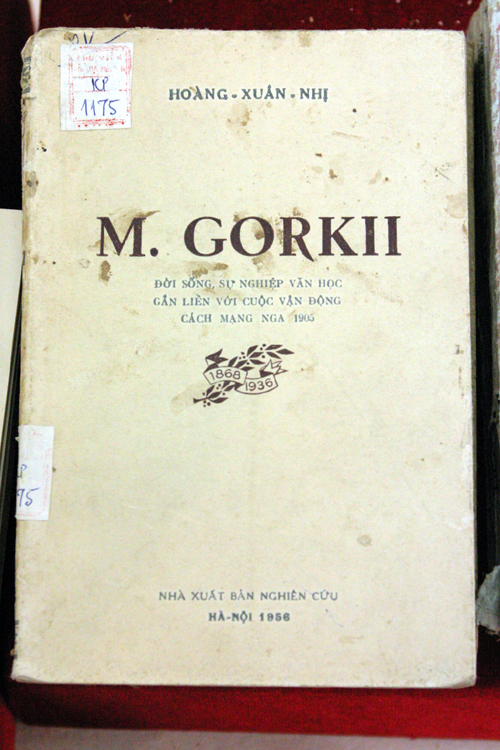
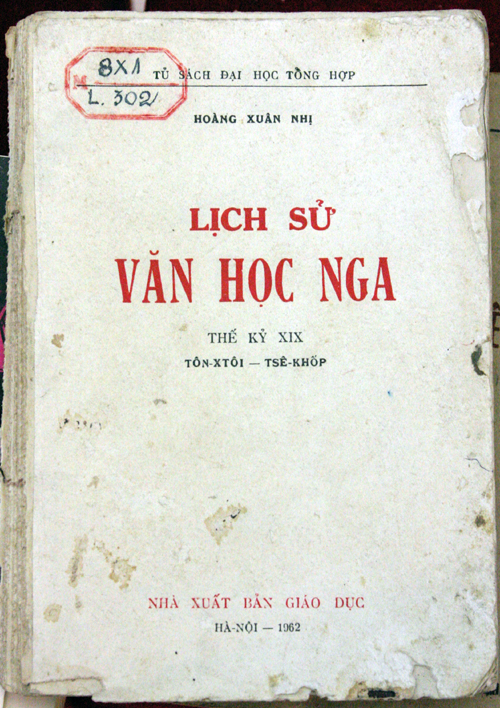
Covers of some typical scientific works of Professor Hoang Xuan Nhi
MonographLearning about President Ho's poetrywritten in the light of Marxist-Leninist aesthetics and the Party's literary and artistic line. The author of the monograph consciously clarifies the theoretical issues of Marxist-Leninist aesthetics through the study of Ho Chi Minh's poetry. The author points out the close unity between national character and party character, between national tradition and humanity in Uncle Ho's poetry. In particular, he points out that Uncle Ho's poetry is the ultimate crystallization of revolutionary heroism in today's era. As a person who is particularly interested in aesthetic categories, Professor Hoang Xuan Nhi agrees with the view that, in Marxist-Leninist aesthetics, it is necessary to reserve a special place for the heroic and the noble alongside the categories of beauty, tragedy, comedy... According to him, "the heroic is a broad category that includes three types of qualities: Politics, morality, and aesthetics, closely linked together and beautifully harmonized." He believed that in Uncle Ho's poetry there was nobility and this category was closely linked to heroism, to revolutionary heroism. He proved those comments through Uncle Ho's poetic creation practice and his pure and noble life. The discussion of aesthetic categories in Ho Chi Minh's poetry is a specific historical contribution of this thesis, however the author was also limited by the simple concept of that time about tragedy in the new society.
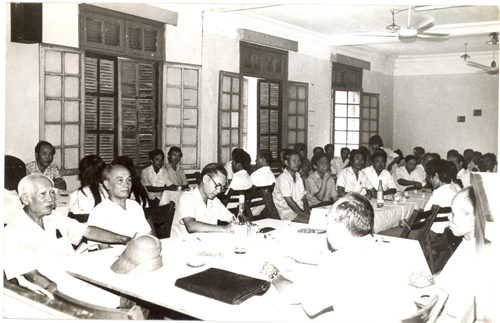
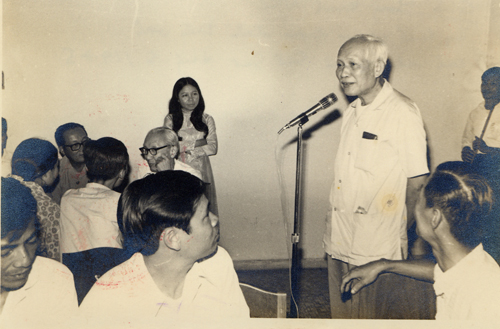
Professor Hoang Xuan Nhi at a meeting (documentary photo)
MonographLearning about President Ho's poetryby Professor Hoang Xuan Nhi is a work rich in theory and full of enthusiasm, contributing to clarifying the great values of Ho Chi Minh's literature and poetry, especially expressing the deep and passionate love of the patriotic intellectual for the Vietnamese revolutionary leader. That deep affection has given this scientific treatise a strong literary essay quality, the researcher's ego is clearly expressed through each page, that is the ego of a patriotic intellectual who does science for revolutionary sentiment and ideals.
Many people wonder: Why does a person who is good at French and knowledgeable about French culture like Professor Hoang Xuan Nhi not focus on studying Western literature? Why doesn't he use his strengths but choose the path of studying Russian literature and learning about Ho Chi Minh's poetry? That worry is well-founded, but I think that choosing such an academic path is reasonable. Because Professor Hoang Xuan Nhi is a patriotic intellectual and a revolutionary soldier; revolutionary sentiment has called to his scientific path and he has come to literature to clarify revolutionary truths through research works.
|
PROFESSOR HOANG XUAN NHI
+ Working unit: Faculty of Literature, Hanoi University of Science + Management position: Head of Literature Department (1960 - 1979).
Against modern reactionary bourgeois ideology in aesthetics, literature and art(Introduction, translation, compilation). Published by Hanoi University of Science. M. Gorki – Life and careerTruth Publishing House, 1958 - 1959. History of 19th-century Russian literatureCulture Publishing House, 1960. Marxist-Leninist aesthetic principles,Episode 1. 1961, 1963. Lenin and party spirit in modern revolutionary literature. 1970. Modern revisionism in literature and art in some countriesHanoi University, 1974. Learning about President Ho's poetry. University and Vocational High School Publishing House, 1976. |
Author:Associate Professor, Dr. Tran Khanh Thanh
Newer news
Older news